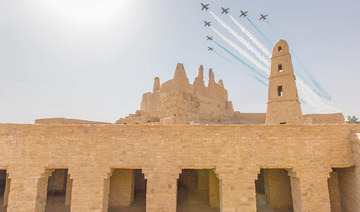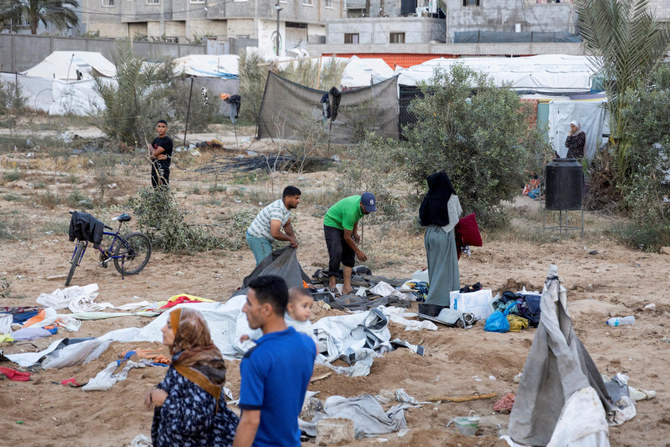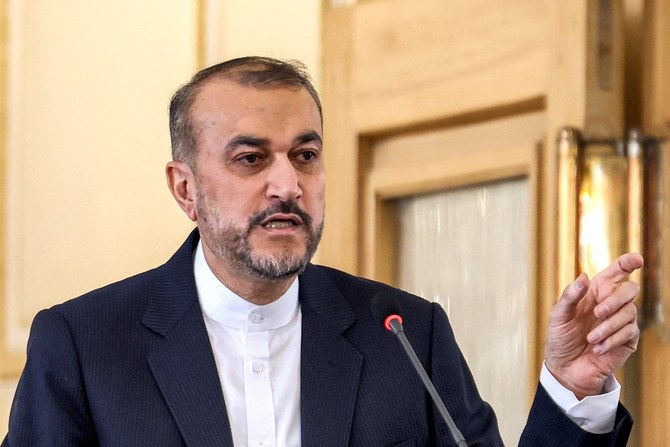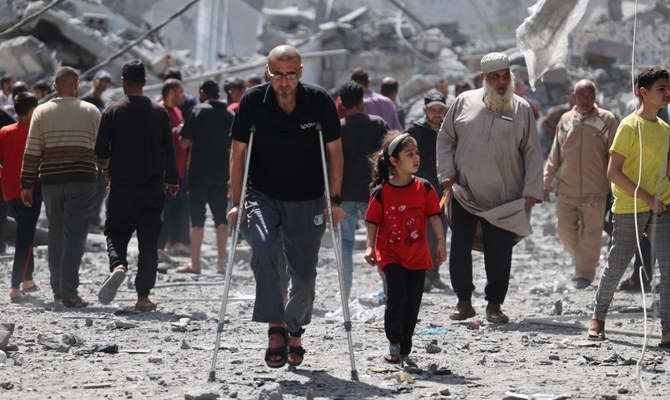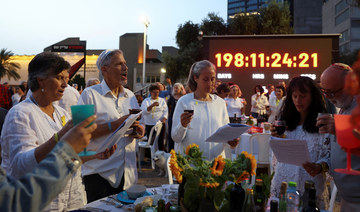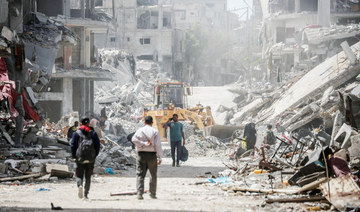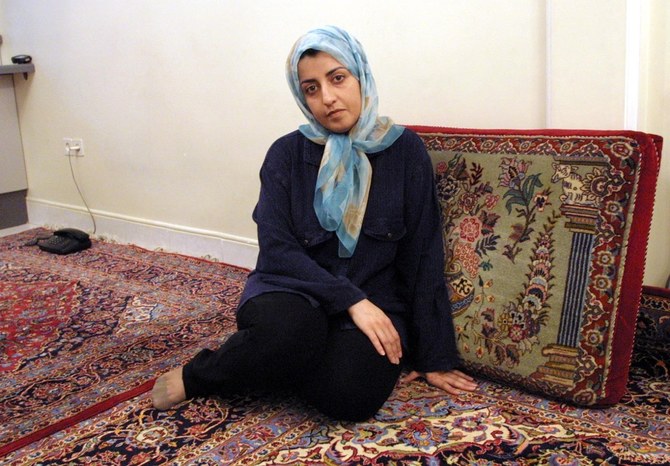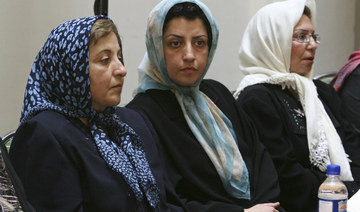DUBAI: As the cities of today grow into those of the future, they will encounter daunting sustainability challenges.
Arguably, the most significant factor that all urban centers will have to take into account is climate change.
With temperatures projected to rise, new infrastructure and operational challenges will have to be tackled by city authorities.
“We need to manage our greenhouse gas emissions while managing our economy,” said Fahed Al-Hammadi, director of climate change at the UAE’s Ministry of Climate Change.
“We must understand future trends in the region and how we will be affected in different sectors. We must engage with the private sector because we can’t work as a government alone,” he added.
FASTFACT
95
Percentage of its lifetime a car in the US is parked on average.
“We need to attract more ‘green’ investors, and ensure that the capacity of renewable energy we’re transitioning to can cope with the transformation.”
Speaking at a recent summit in Dubai on emerging technologies, Al-Hammadi envisioned cities of the future contributing to a reduction in emissions — transportation currently contributes a third of total emissions — and thus helping governments achieve their emission-reduction targets.
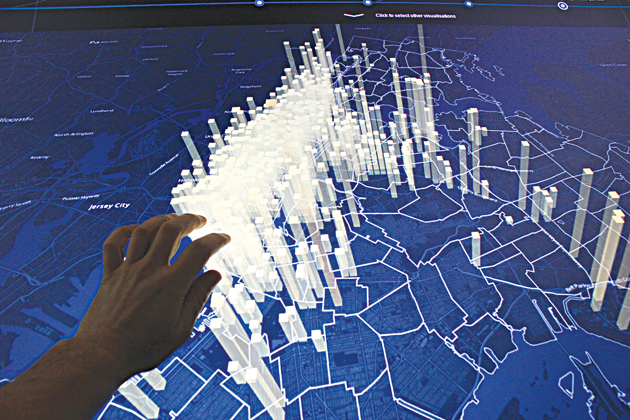
Senseable City Lab at MIT collects data on car movement to improve urban transport. (Supplied)
Cities’ sustainability will prove a major challenge in the Middle East, a region with a growing population and diminishing water resources.
“Climate change is happening and there are future challenges, but it’s very important, with the structure we have in modern cities, to have an understanding of the impacts and the changes we’re going to experience,” Al-Hammadi said.
One tool that is becoming increasingly important for urban authorities planning for future challenges is data.
Carlo Ratti, director of Senseable City Lab at MIT, said that reliable data is essential for a better understanding of the cities we live in.
He is working on collecting data from the movement of cars to understand transport patterns in a city and how it can be improved.
With the average number of car sensors today ranging from 2,000 to 3,000, Ratti told the EmTech MENA conference that the “ambient sensing platform” can be scaled up to include taxis and used for monitoring a city’s “structural health” (bridges and other infrastructure). Pilot projects are currently being conducted in collaboration with Uber in Singapore, he said.
“You can radically change the way we move in a city,” Ratti added. “In the US today, a car is parked on average 95 percent of the time. It uses valuable space in our cities as well. But a self-driving system can change that.”
Ratti offered the example of the 1.37 million parking spots in Singapore, 70 percent of which can be cut with autonomous cars.
His work encompasses traffic lights as well, whereby cars will be able to detect intersections, removing the need for such lights.
Meanwhile, in Amsterdam self-driving boats that can be used as floating platforms for temporary bridges are being deployed to configure the city in an increasingly dynamic way.

Self-driving boats are used as temporary bridges in Amsterdam, Netherlands. (Supplied)
“The beauty of technology isn’t about creating new needs. It’s about doing things in a different and better way,” Ratti said.
Experts have jumped to cities’ defense by trying to make them more resilient as they face the twin onslaughts of overpopulation (55 percent of the planet’s 7.4 billion people live in urban areas) and climate change (rising sea levels due to global warming threaten to wipe out many coastal cities).
The health sector will need an overhaul to cater for the evolving needs of the cities of the future.
A pioneer in this area is BioBot, a US biotech company that measures the concentration of drugs that are excreted in urine and collected in sewerage systems.
“We measure opioids in sewage to estimate consumption in cities, counties and states,” says BioBot’s website. “We map this data, empowering communities to tackle the opioid epidemic in real time.”
By mapping a city’s wastewater network and studying the demographic information associated with that data, more effective public-health policies can be created, said Newsha Ghaeli, the company’s co-founder and president.
“A human health crisis affecting communities, such as measles, polio, obesity or diabetes, is only heard about when the crisis turns into a catastrophe,” Ghaeli said.
“But it doesn’t have to be this way. We imagine a city where every person can contribute to a database about our health and we’re building it, based on a concept called wastewater epidemiology.”
For instance, human urine is an important pathological sample, and so can be regarded as a rich source of information embedded in city sewers.
“You need a lot of different disciplines and industries working together to make sense of this data, like engineers, chemists, biologists, public health, urban planners, water and sewers, elected officials, data scientists and public works,” Ghaeli said. “So we’re the first company in the world to commercialize data from sewage.”
Hardware units are installed inside manholes, hanging a few feet above the sewer flow, with tubes that capture bacteria and study the chemical profile. BioBot’s team of scientists then looks at the human bacteria, viruses and chemicals.
“There’s so much we can learn from wastewater,” Ghaeli said. “We chose to tackle, first, the opioid epidemic, which is the leading cause of accidental death of Americans under 50.”
However, recent studies have shown that less than 1 percent of those who suffer from opioid use disorder are dying.
“So it doesn’t matter how you slice or dice the data, we just don’t have the information,” Ghaeli said. “What’s clear is that we’re measuring the wrong thing, so we are now measuring 30 different drugs and looking at emerging trends in drugs.”
The first town to test the system was Cary in North Carolina, where overdoses decreased by 40 percent last year for the first time in half a decade, Ghaeli said.

Pavegen’s tech captures energy from pedestrian footsteps to power street lighting. (Supplied)
During a six-month pilot program, BioBot was also able to create a heat map to pinpoint areas where overdoses were concentrated.
Despite such technological breakthroughs, and the fact that an estimated 33 percent of the world’s energy is now derived from renewable sources, many of the world’s most densely populated cities are ailing.
“Cities have been built for machines — cars and planes — and some have forgotten about the people,” said Laurence Kemball-Cook, CEO of Pavegen.
The technology company has developed paving slabs to convert energy from citizens’ footsteps into “energy, data and rewards.”
He said: “I’m on a mission to try to make our cities greener. There is a big challenge in urban areas.”
To achieve his goal, Kemball-Cook turned to kinetic energy, capturing the energy from pedestrians’ footsteps to power streetlights.
So far, the kinetic-energy system has been used in Nigeria, London, Abu Dhabi Airport, Thailand and Birmingham, as well as on a running track in Hong Kong.
“We’re excited about the vision of the future city,” he said, adding that he hopes to take Pavegen’s technology to Expo 2020 in Dubai and Neom in Saudi Arabia.
“The potential of using human power in our cities is huge. The technology in a city has to work with the people,” Kemball-Cook said.
“A city isn’t just about finding a new energy solution, it has to be about wellness, smart (practices), fun, sustainable and connecting into the Internet of Things data layout,” he added.





